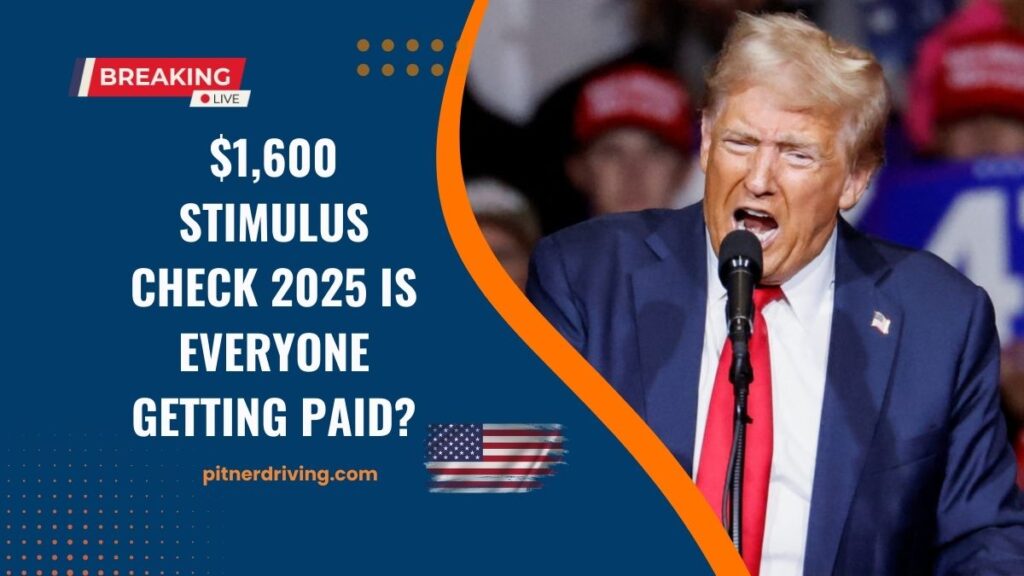As inflation and the rising cost of living continue to strain household budgets across America, the $1,600 Stimulus Check 2025 has emerged as a potential relief for millions of Americans.
This government-issued payment could provide crucial financial support to those who need it most—especially low and moderate-income earners.
Let’s break down the eligibility, payment schedule, benefits, and what you can expect in the coming months.
Eligibility Criteria for the $1,600 Stimulus Check
The eligibility rules are expected to align closely with previous stimulus efforts from the IRS and Treasury Department. Here’s what you should know:
- Income Thresholds:
Individuals earning less than $75,000 annually, and joint filers under $150,000, may qualify for the full amount.
Income above these levels could reduce or eliminate your payment. - Dependents:
Families with children might be eligible for additional funds per dependent, increasing the total stimulus amount. - Non-filers and Benefit Recipients:
Those receiving Social Security, SSI, SSDI, or VA benefits could still qualify—even if they didn’t file a tax return. - Tax Filings:
It is crucial that your 2023 or 2024 tax returns are on file with correct banking information.
Payment Methods & Schedule
If passed, the IRS will likely use the same channels as previous stimulus checks for disbursement:
| Payment Method | Timeline | Details |
|---|---|---|
| Direct Deposit | 7–10 days after approval | Fastest method; funds deposited into bank accounts on file. |
| Paper Checks | 2–3 weeks after approval | Sent via mail; may take longer due to postal delays. |
| Prepaid Debit Cards | 3–4 weeks after approval | For individuals without banking access; can be used like a regular card. |
To avoid delays, ensure your IRS records are up to date.
How the $1,600 Stimulus Could Help
A $1,600 payment can make a meaningful difference in the daily lives of millions. Here’s how many recipients typically use these funds:
- Paying rent or mortgage
- Covering utility and medical bills
- Buying groceries and household essentials
- Creating an emergency savings fund
- Paying down debt or overdue bills
- Investing in education or job training
Since stimulus checks are not taxable and don’t need to be repaid, recipients can use them freely for immediate or long-term financial needs.
Current Status & What’s Next
While the $1,600 check hasn’t yet been officially approved as of July 2025, discussions are underway in Congress about the next round of stimulus payments.
Economic pressures, especially among low-income groups and retirees, are driving renewed attention to this type of aid.
If the bill passes, expect the IRS to roll out the payments in stages—starting with those who already have direct deposit info on file.
The $1,600 Stimulus Check 2025 could be a vital support mechanism for millions struggling with rising costs. Whether you use it for bills, food, savings, or investing in your future, this payment could bring much-needed financial relief.
Stay informed, update your IRS records, and be prepared for announcements in the coming weeks.
FAQs
Who is eligible for the $1,600 Stimulus Check in 2025?
Low- and moderate-income individuals, families, and benefit recipients like Social Security or SSI are likely eligible.
How will the stimulus payment be sent?
It will be delivered via direct deposit, paper checks, or prepaid debit cards, depending on your IRS records.
Is the $1,600 stimulus payment taxable?
No, in most cases, stimulus checks are not considered taxable income and do not need to be repaid.

